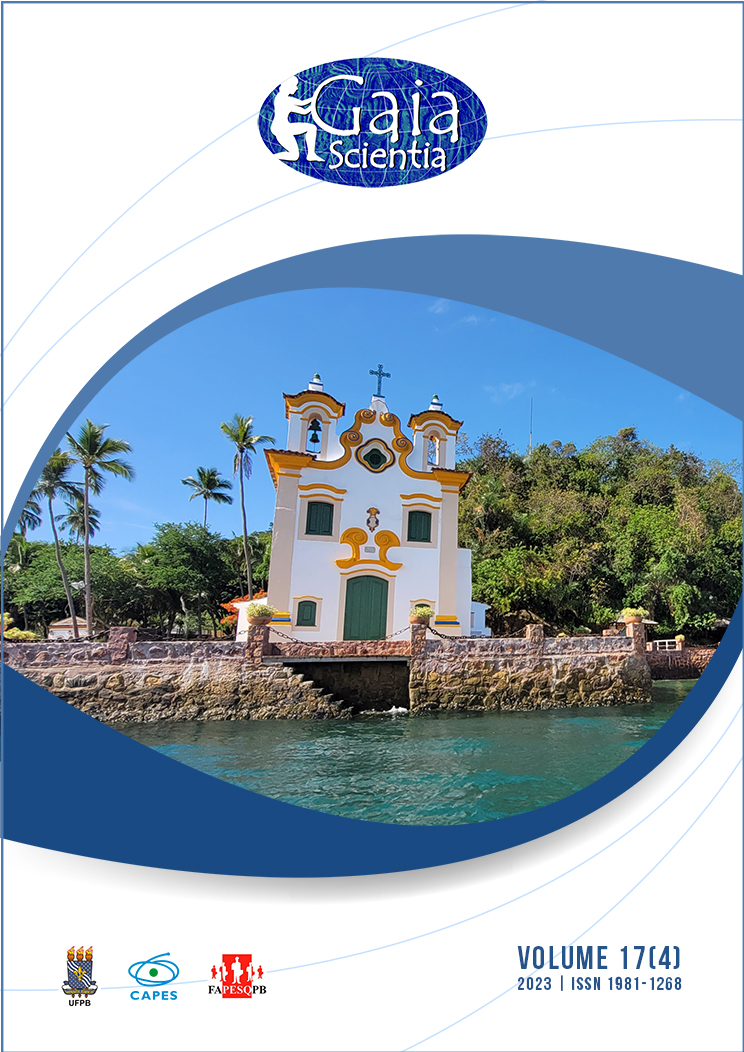Phytochemical Prospecting and Biological Activity Evaluation of the Ethanolic Extract of the Mandacaru Cactus in the Lavrado of Roraima, Brazil
DOI:
https://doi.org/10.22478/ufpb.1981-1268.2023v17n4.66773Abstract
Lavrado refers to the savanna region in Roraima, crucial for biodiversity and water resource conservation. Comprising diverse vegetation around lakes and streams, often accompanied by buritizais and Mandacarus. This study focused on the phytochemical prospecting and biological evaluation of the ethanolic extract of C. jamacaru, collected in this region. The extract was assessed for antioxidant capacity using DPPH and ABTS methods, and for total phenolic compound content. The chemical profile was analyzed using the APCI-MS method. Toxicity was evaluated through CL50 analysis in an acute assay with Artemia salina. Phytochemical prospecting revealed the presence of secondary metabolites: phenols, tannins, alkaloids, flavonoids, sesquiterpenolactones, and other lactones, saponins, steroids, triterpenoids, flavones, flavonols, chalcones, aurones, and isoflavones. Antioxidant capacity was 63.8% for DPPH and 92.3% for ABTS. Total phenolic compound values were 102.4 mg GAE 100 g -1. The ethanolic extract showed no lethality against A. salina at concentrations of 2250, 2000, 1500, 1250, 1000, 500, 250, and 125 µg mL -1. Antimicrobial activity showed no inhibition against tested microorganisms at concentrations up to 1 mg mL-1.










